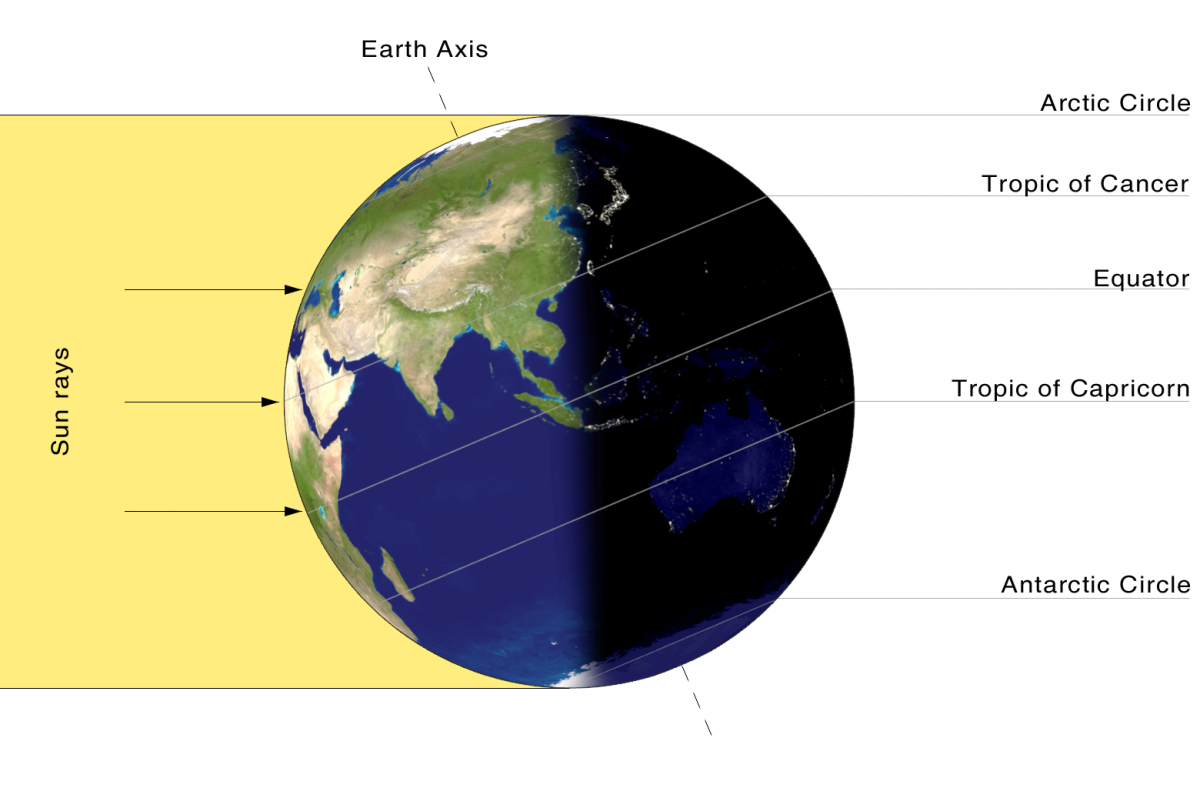 Last week it was Happy Father's Day! This week, it's happy Full Moon Solstice! Find out just how rare it is that there's a full moon on the longest day of the year below. We've also got some politics, some scary clams, and—wait for it—hobbits. Quite a week.
Last week it was Happy Father's Day! This week, it's happy Full Moon Solstice! Find out just how rare it is that there's a full moon on the longest day of the year below. We've also got some politics, some scary clams, and—wait for it—hobbits. Quite a week.
- Bill Would Establish Climate Change Teaching Curriculum, The Hill, June 17, 2016 — Massachusetts' senator Ed Markey has introduced a bill that would require the National Oceanic and Atmospheric Administration to develop a climate change curriculum. NOAA is already doing great work with climate change education on all levels (professional development to classroom resources), so this is not an unexpected choice!
- Why Dwarfism?, Sapiens, June 17, 2016 — Caitlin Schrein explores why big critters tend to get smaller on islands. She focuses specifically on newly-discovered bones of Homo floresensis, the diminutive human species which once lived on Flores (in modern Indonesia). These so-called hobbits appear to be offshoots of earlier human species, having been on the island for hundreds of thousands of years. And in that time, the species shrank. That’s a common pattern among many animals resident on islands, from foxes to elephants. Schrein explores how island dwarfism evolves, and what it tells us about our enigmatic cousins on Flores.
- Happy Full Moon Solstice, Slate, June 20, 2016 — What does this have to do with evolution or climate change, you might ask? Nothing! But it’s pretty cool, and Phil Plait is such a great science explainer. Besides, my inner nerd is happy to learn that there is something called the Metonic Cycle—if you have a full moon on a certain date, it will happen on that same date every 19 years. People have known about the Metonic Cycle for 2,500 years. And we modern folks think we discovered everything.
- Lawmakers Might Introduce 'Anti-evolution' Legislation to Appease Religious Constituents, EurekAlert, June 20, 2016 — New research from Rice University theorizes that "anti-evolution" education legislation continues to be introduced because lawmakers want to appease religious constituents, not because they expect the bills to be made into laws. A press release, sure, but the findings? Unsurprising to those of us at NCSE!
- New Crop Varieties Can't Keep Up With Global Warming, BBC News, June 21, 2016 — Agriculture scientists are constantly developing new breeds of plants in an attempt to keep one step ahead of climate change, but current research says they aren't moving fast enough. It currently takes at least 10 years to bring a new breed of corn through research and development into the hands and fields of farmers. But conditions have been changing so quickly that a crop that would have been a lifesaver a decade ago may not be able to thrive under current climate conditions. With some corn-growing regions likely to be unable to support current breeds as soon as 2018, researchers will need to find ways to act more quickly and make more accurate predictions of future conditions.
- The Contagious Cancer that Jumped Between Clam Species, The Atlantic, June 22, 2016 — What’s scarier than cancer? Cancer that is contagious. What’s scarier than contagious cancer? Contagious cancer that can jump from one species to another. Sure, it’s clams…but that doesn’t mean humans shouldn’t pay attention.
- The Arctic’s Pretty But Alarming Strawberry-Pink Snow, The Washington Post, June 23, 2016 — Researchers have found that reddish algae blooms in arctic snow—yes you read that right!!—worsen arctic melts caused by climate change. Why? Albedo—aka the proportion of light reflected from a surface. The Washington Post describes this phenomenon, sometimes called "blood snow", as "a bit like a glacier tossing on a red shirt (lower albedo) instead of a plain white tee (high albedo)." But reallu—there is algae that lives in snow. Mind blown.
- Why the Brexit Vote Result has UK Scientists Terrified, Vox, June 24, 2016 — Why oh why didn’t we all hear about the potentially devastating effect the UK’s decision to leave the EU could have on science until now, when it’s too late? Many scientists on Twitter are at five-alarm panic. Science relies on international cooperation and often, international sources of funding. Yesterday’s vote could cause ripples across the science community.
- Rebel Without A Chemistry Set, Chemistry Heritage Foundation, Spring 2016 — Turns out that NCSE’s Science Booster Clubs have some interesting forebears. At the Chemistry Heritage Foundation, Elisabeth Drago Smith reports on how afterschool science clubs in the 1920s were promoted as a weapon against childhood delinquency. “In the 1930s,” she reports, even "the New York City Police Department trained officers to lead groups of poor urban youth in nature study and science activities.” The theory, according to one advocate of the programs, was that “teens’ competitive spirits and innate desire to gain and impress friends (what he bluntly called 'gang tendencies') could be best redirected toward chemistry, a science he considered active, hands-on, and cooperative.” One limitation of these efforts: they tended to be offered only to limited audiences. Young women were directed toward home economics and clerical skills, while the urban and rural poor were largely ignored. Not a mistake NCSE will make with its booster clubs.
Summer solstice figure credit: CC BY-SA 2.0, https://commons.wikimedia.org/w/index.php?curid=113487

